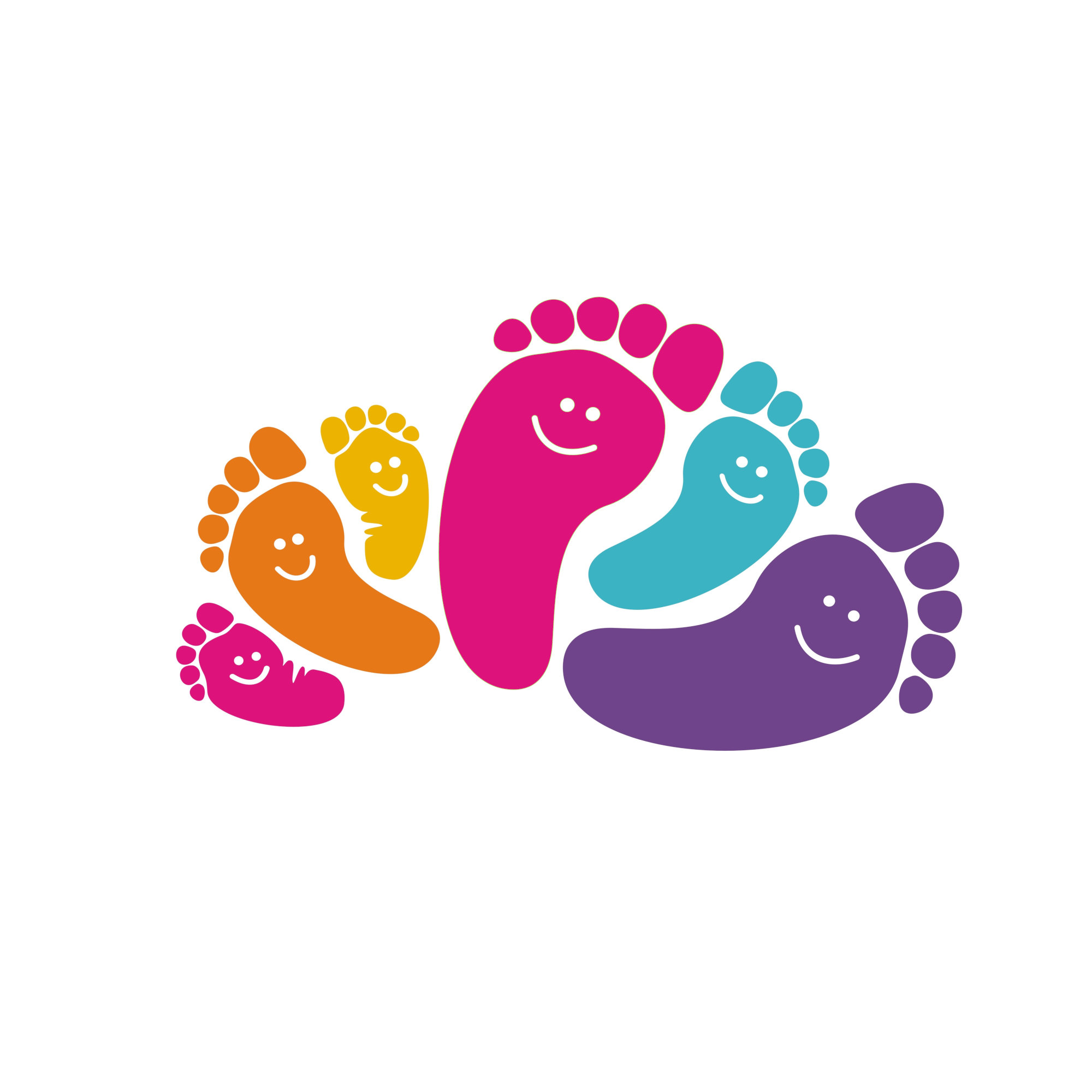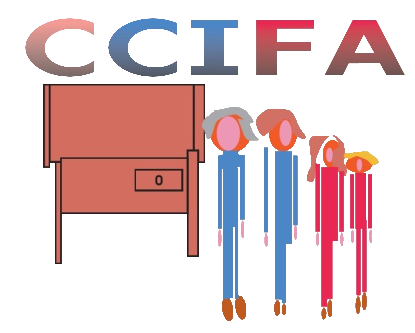Children
Evaluation
Our assessment services are based on current clinical protocols in hospital clinics specializing in autism spectrum disorders and according to the guidelines of the Order of Psychologists and the College of Physicians (ADOS, ADI-R, assessment intellectual and functional).
We also assess for Attention Deficit Disorder with / without Hyperactivity and for School Derogation according to the guidelines of the Order of Psychologists of Quebec.

ASD Diagnostic Assessment - COVID-19 Protocol Underway
Memo to families for remote diagnostic evaluation (children 0-12 years)
Reminder of the pandemic context : For the moment, consultations and assessments cannot be carried out according to the usual procedure, due to the choice of the CCIFA, in accordance with the directives of the ggovernment, is for the moment offer videoconferences as part of the diagnostic assessment process for children under 10 years of age (limitation of social contact, social distancing, wearing of a mask - with the youngest, these conditions cannot be met).
Do you agree that we organize a videoconference interview with a psychologist from the clinic?
If not : we keep your file pending and will get back to you as soon as we can resume consultations;
If yes :
- Do you have a computer, smartphone or tablet?
- We offer you a first phone call contact (call by a psychologist), which will last about 30 minutes, to explain the videoconferencing process, its practical modalities (explain the process for joining the consultation via video) and answer your questions concerning this meeting, its progress and what you can expect from it;
- A second meeting in videoconference, longer, will then be planned according to your best availability (eg: nap for children, when another adult can supervise them so that the parent can be available to answer questions).
___________________________________________________________________________________________________________________________________________________
Protocol proposed as part of the diagnostic assessment process for a suspected autism spectrum disorder
- Screening (during the telephone meeting, approx. 30 min billed)
- General information by telephone
- Sending questionnaires by email
- Evaluation in-depth diagnostic (approx. 2 hours billed)
- Developmental interview / history using ADI-R (Interview for the diagnosis of autism)
- Receipt of screening questionnaires and analysis of results
- Explanation of the consent form and the next steps
- Parents send 4 short videos of their child in various contexts, viewing and analysis (approx. 2 hours billed)
For the videos, it is not a question of showing us the moments when their child performs the best (e.g. the only time he showed something by pointing or the only time he said a word, ) but times when he has his most usual behavior).
- For small children (1 year to 5 years old)
- Record or select 4 videos lasting 1 and a half to 5 minutes :
- a) A moment of the child's meal
- b) A moment when the child is playing alone,
- c) A moment when he is playing with one of the parents,
- d) A moment that they think is important to show us.
- For children aged 6 to 12 :
- a) A moment when he plays alone
- b) A time when the child is interacting (with another child or a parent)
- c) A moment when he presents his favorite toy or talks about a subject that fascinates him
- d) A moment that they think is important to show us.
- Interview with parents to assess adaptive behaviors and other aspects if necessary (approx. 2 hours billed)
- Contact with various professionals or stakeholders in the file such as: pediatrician, speech therapist, educator (approx. 1 hour billed)
- SIf an in-person observation is necessary, we will agree together on the modalities for this to be done at the clinic and on how to comply with hygiene measures (wearing a mask or visor, parent's participation in the evaluation with her child)
-
7. Psychological analysis work (4 to 5 hours)
Telephone contact with the childcare center, school or other
Analysis and Interpretation of Results
- ADI-R, ADOS
- Questionnaires
- Complementary assessments
- Writing of the report
- Conclusions and submission of the report (1h to 1h30)
Receipts for insurance purposes can be issued for those who wish.
Analysis and Interpretation of Results
ASD diagnostic assessment (child / adolescent)
1st Interview (1h to 1h30)
Meeting for the analysis of the request and informal observation with the parents and their child or the autistic person (adolescent)
- Explanation of the evaluation procedure
- Presentation of the evaluation protocol, service agreement and consent
- History (pregnancy), developmental history
Submission of screening questionnaires
2nd Interview (approx. 2 hours)
- Diagnostic interview with parents with ADI-R (Autism Diagnostic Interview-Revised)
3rd Interview (approx. 2 hours)
Interview with child or client over 14
- ADOS (Autism Diagnostic Observation Schedule)
- Theory of mind and Sociopragmatics
4th Interview for the evaluation of adaptive behaviors (approx 1h30)
Interview with parents to assess adaptive behaviors (Vineland, ABAS)
5th Complementary Assessment (approx 2 hours)
Complementary assessment with the child or client (over 14 years of age): intellectual, developmental or functional assessment of associated disorders (e.g. attention, memory, executive functions, language, individual performance, etc.)
This step may not be necessary: 1) for very young children under 5 years old with little verbal skills or 2) for the client who would have already been assessed at these levels in the last 2 years. This could be replaced by an observation in the environment (daycare, school, home) if this is desirable.
6th Psychological analysis work (4 to 5 hours)
Telephone contact with the childcare center, school or other
Analysis and Interpretation of Results
- ADI-R, ADOS
- Questionnaires
- Complementary assessments
- Writing of the report
7th Conclusions and submission of the report (1h to 1h30)
Presentation of findings and written report to parents (and adolescent if over 14)
Psychological assessment of ADD and ADHD (child / adolescent)
,
This assessment has three main objectives:
- Check whether the behaviors exhibited by the person meet the criteria for the presence of attention disorder according to the DSM criteria 5.
- Check if there are alternative explanations for the behaviors presented (Autism spectrum disorder, anxiety, etc.).
- Identify the strengths and needs of the person being assessed.
1st Interview (approx. 1 to 1.5 hours)
Screening meeting. This meeting is usually done without the presence of the child.
- Analysis of demand and expectations regarding the evaluation.
- Explanation of the evaluation procedure
- Signing of the service agreement and consents to communicate.
- History (pregnancy), developmental history, school history.
- Request for relevant documents (bulletins, previous evaluations, etc.)
- Submission of screening questionnaires
2nd Interview (approx. 2 hours)
Interview with the child, adolescent or adult
- Assessment of the intellectual profile from standardized cognitive tests.
3rd Interview (approx 1h30 to 2 hours)
Interview with the child, adolescent or adult for the assessment of attentional capacities and executive functions
Administration of specific tests for the evaluation of attention (auditory and visual) and executive functions (planning and organization skills).
4th Interview (if necessary) for additional evaluation (approx 1.5 hours)
Complementary assessment with the child or client (over 14 years of age): assessment of affective elements that may contribute to the person's difficulties (eg anxiety, difficulty in social understanding, personality disorders or mental health disorder)
This step may not be necessary. This could be replaced by an observation in the environment (daycare, school, home) if this is desirable.
Psychological analysis work (4 to 5 hours)
- Telephone contacts with the childcare center, school or other.
- Analysis and Interpretation of the results of tests and questionnaires.
- Writing of the report
5th Interview - Conclusions and report submission (1 to 1.5 hours)
- Presentation of findings and written report to parents (and adolescent if over 14) or adult.
Cognitive, developmental or functional assessment
Here are the different steps available to you. Each being independent of each other, but scalable and complementary, this allows you to choose the deepening that you want to pursue in your approach.
1st Interview (approx. 1h30)
Interview with parents (children / adolescents) to define assessment needs and to complete an adaptive behavior scale (Vineland, ABAS)
2nd Interview (approx. 2h30 per evaluation)
Meet at the clinic for the evaluation:
A) intellectual (e.g .: WPPSI-III, WISC-IV, WAIS-II)
B) Development (e.g .: Mullen, PEP3, Petite EVAC or EVAC)
C) Functional: autonomy, social skills, communication
3rd Job psychological analysis (approx. 4 hours)
Telephone contact with the childcare center, school or other
Observation in the environment if necessary or desired (addition of 2 hours)
Analysis and Interpretation of Results
Writing of the report
4th Conclusions and report submission (1h to 1h30)
Presentation of the conclusions and the written report to the parents and the teenager if over 14 years old
Psychological and emotional screening and assessment
Screening and evaluation of psychological and emotional disorders such as anxiety, depression, motor disorders (eg: tics), behavioral disorders, etc.
1st Interview (approx. 1h30)
Interview with parents (children / adolescents) to define assessment needs
2nd Interview (approx 1h30)
Interview with the child / adolescent or observation in playful activities according to age
3rd Interview (approx 1h30)
Standardized questionnaires and interviews as needed
4th Contacts (approx. 1h)
Telephone contact with the childcare center, school or any other significant environment
5th Observation in the media (approx. 1h30)
Observation and taking of tests or questionnaires in the environment as needed
6th psychological analysis (approx. 4 hours)
Analysis and Interpretation of Results
Writing of the report
7th Conclusions and submission of the report (1h to 1h30)
Review meeting to transmit conclusions and recommendations (intervention plan)
School derogation
1st Interview (1 hour) Screening (can be done online)
Interview with the parent (motivation for the exemption)
- Analysis of demand and expectations regarding the evaluation.
- Explanation of the objectives of a waiver and the assessment procedure
- Signing of the service agreement and consents to communicate.
- Request for relevant documents (bulletins, previous evaluations, etc.)
- Submission of questionnaires for parents and daycare (socio-emotional profile, adaptive behaviors).
2nd Interview (1.5 to 2 hours)
- Interview with the child
- Assessment of the child's cognitive profile
- Correction and recommendation of prosecution or not
- Interview with parents (anamnesis, developmental history)
3rd Interview (1 to 1.5 hours)
- Interview with the child
- Visuomotor assessment
- Assessment of emotional and social maturity
- Interview with parent (if necessary) for additional information (adaptive behavior, socio-emotional profile)
4e maintenance (as needed) (1 to 2 hours)
Observation visit to the daycare
Psychological analysis work (3 hours)
- Telephone contact with the childcare center or other
- Analysis and Interpretation of the results of tests and questionnaires.
- Writing of the report
5e interview: Conclusions and report submission (1 to 1.5 hours)
Presentation and explanation of the child's strengths and needs, conclusions regarding the exemption request, and delivery of the written report to the parents
ADHD Assessment
This assessment has three main objectives:
- check whether the behaviors presented by the person meet the criteria for the presence of an attention disorder according to the DSM criteria 5.
- check if there are alternative explanations for the behaviors presented (Autism spectrum disorder, anxiety etc.).
- identify the strengths and needs of the person being assessed.
1st Maintenance (approx. 1 to 1.5 hours)
Screening meeting. This meeting is usually done without the presence of the child.
- Analysis of demand and expectations regarding the evaluation.
- Explanation of the evaluation procedure
- Signing of the service agreement and consents to communicate.
- History (pregnancy), developmental history, school history.
- Request for relevant documents (bulletins, previous evaluations etc.)
- Submission of screening questionnaires
2nd Interview (approx. 2 hours)
Interview with the child, adolescent or adult
- Assessment of the intellectual profile from standardized cognitive tests.
3rd Interview (approx. 1h30 to 2 hours)
Interview with the child, adolescent or adult for the assessment of attentional capacities and executive functions
Administration of specific tests for the evaluation of attention (auditory and visual) and executive functions (planning and organization skills).
4th Interview (if necessary) for additional evaluation (approx. 1.5 hours)
Complementary assessment with the child or client (over 14 years of age): assessment of affective elements that may contribute to the person's difficulties (eg anxiety, difficulty in social understanding, personality disorders or mental health disorder)
This step may not be necessary. This could be replaced by an observation in the environment (daycare, school, home) if this is desirable.
Psychological analysis work (4 to 5 hours)
- Telephone contacts with the childcare center, school or other.
- Analysis and Interpretation of the results of tests and questionnaires.
- Writing of the report
5th Interview - Conclusions and submission of the report (1 to 1.5 hours)
- Presentation of findings and written report to parents (and adolescent if over 14) or adult.
Intervention
Our interventions are mainly inspired by the Applied Behavior Analysis (ABA-Applied Behavior Analysis), cognitive behavioral therapy (CBT), structured and individualized intervention according to the TEACCH model, the communication system by exchange of 'images (PECS) and socio-emotional approaches (Early Start Denver Model, Floortime, SCERTS, etc.).
Individual or group intervention (6 years and over)
Support to the person
- Development of communication and social skills
- Development of autonomy skills in daily life
- Managing emotions (anger, anxiety), self-esteem
- Development of academic success skills (homework help, organizational strategies, educational support, etc.).
- Development of work and adult life support skills (16 years and over)
- Psychotherapy
- Group intervention
Support for family and siblings
- Emotions management, self-esteem (parents, siblings)
- Development of educational programs, behavior management and daily practical application in the family and community
- Development of skills for academic success (homework help, organizational strategies, educational support, etc.) and integration into the labor market
- Support for the defense of rights (school, CISSS and CIUSSS, PSI, PEI, Transition Plan, etc.)
-
Post-diagnostic intervention
-
Parental coaching
-
Psychological education
Psychosocial rehabilitation
Coaching for the adoption and maintenance of healthy lifestyles, improvement of the daily functional level, the organization of daily life and interpersonal relationships (adolescents and adults with ASD)
Mentoring / peer helper for parents
Support for parents during their participation in the development of a school intervention plan adapted to the needs of their child / adolescent
Vocational rehabilitation
Support for labor market integration
- Acquisition of job search techniques: identification of suitable jobs, writing resumes, identifying potential employers;
- Support for socio-professional integration.
Support for job retention
- Support for people living with professional issues;
- Advisory role with employers with employees with ASD;
- Preparation for a return to work following a work stoppage.
Rehabilitation process:
- Initial assessment (2 meetings);
- Follow up with goal setting at each meeting.
Monitoring is based on person support, the strengthening of skills, but also aims to promote the return or development of capacities as well as intrinsic motivation to achieve realistic life goals.

